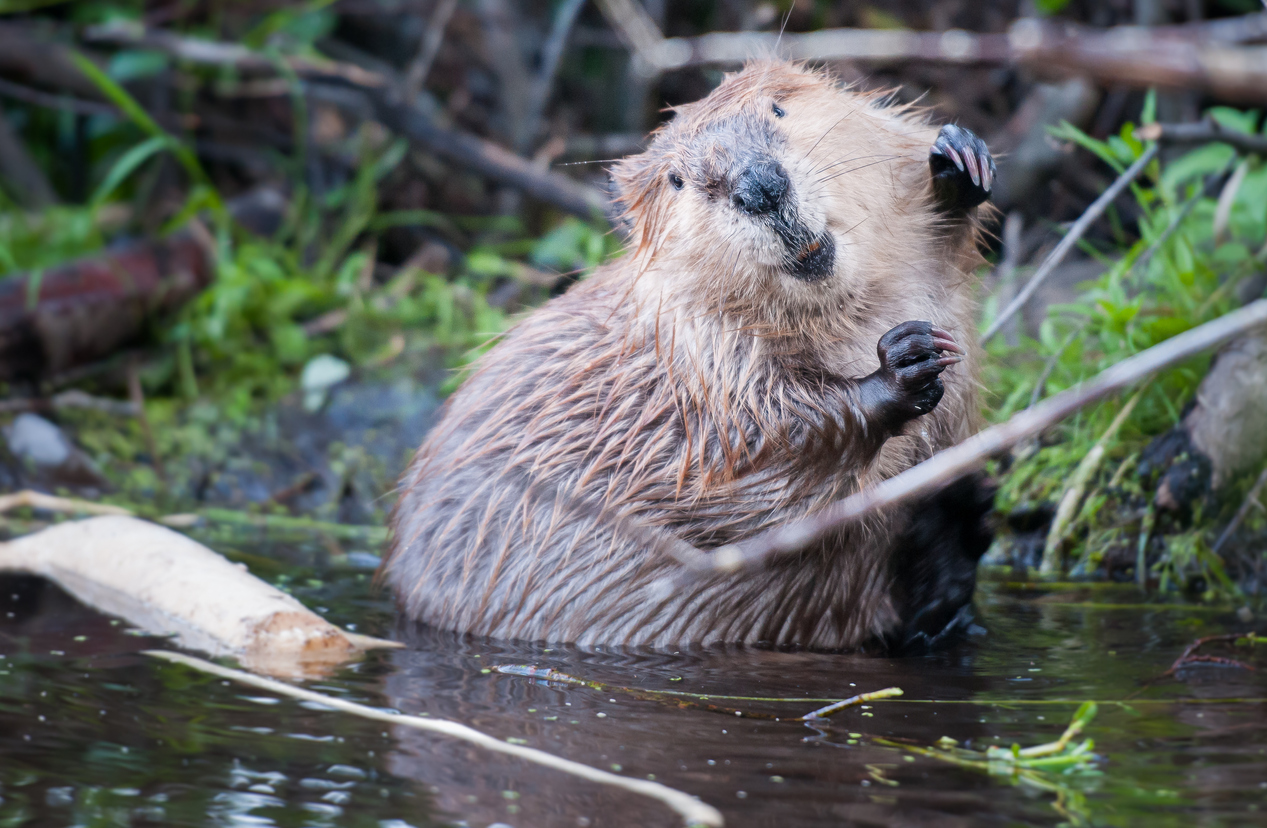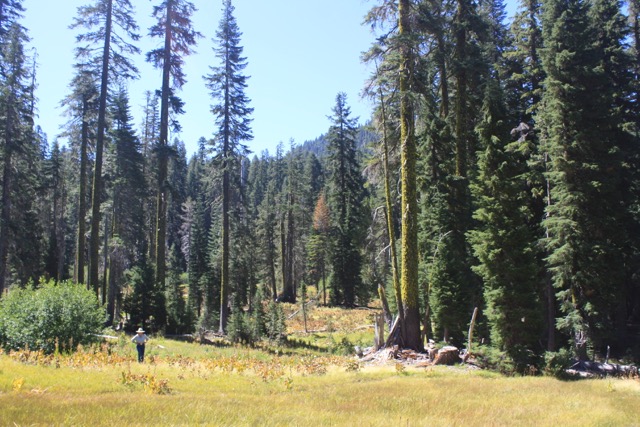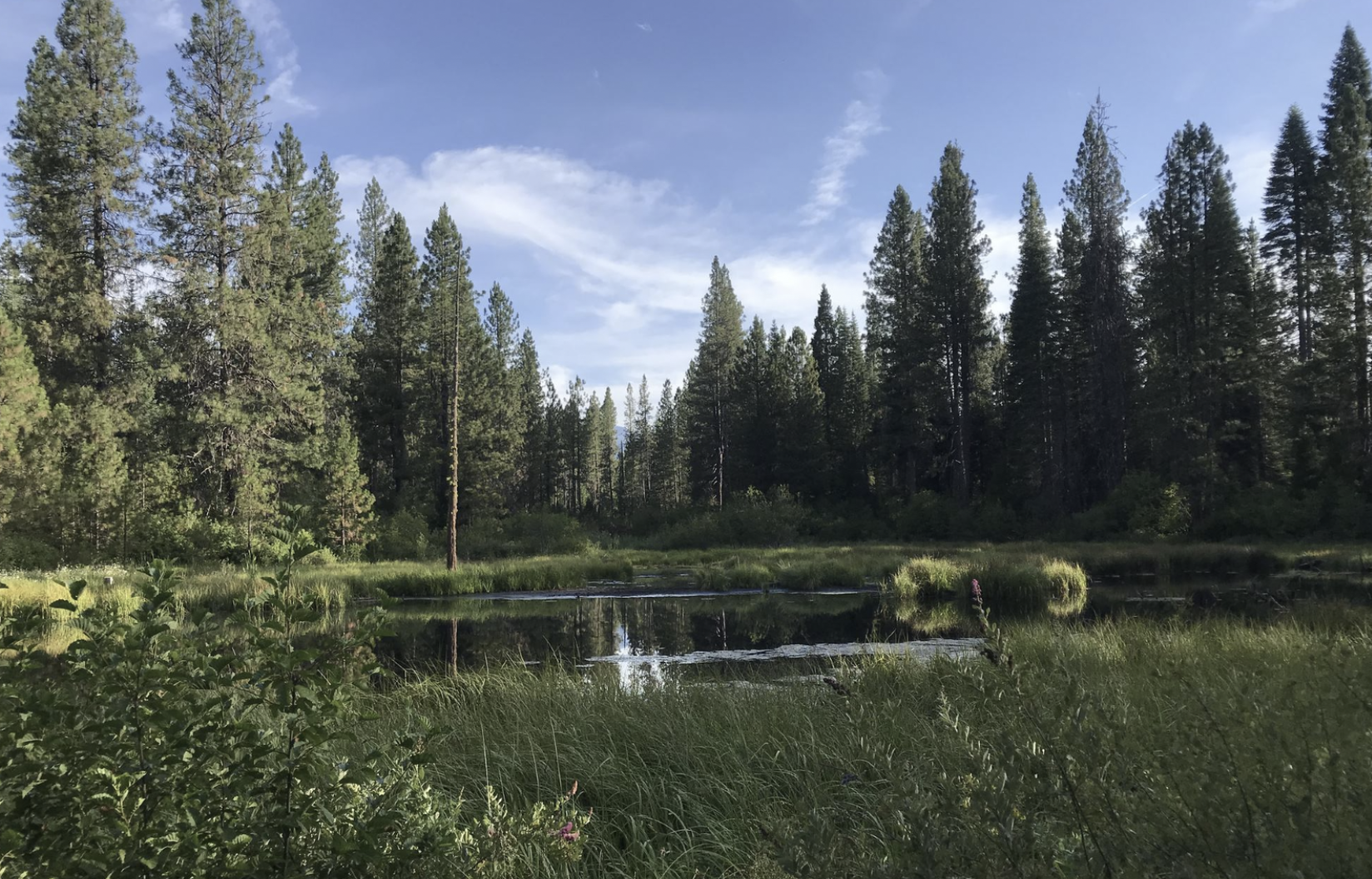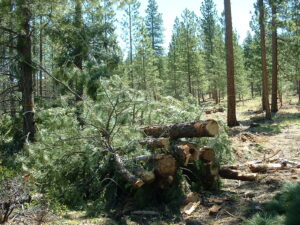FOREST FLASH April 2023
In Pacific Forest Trust’s e-newsletter, Forest Flash, we send you the most recent PFT news and updates on forests, clean water, climate, and wildlife. Subscribe here.

Oregon is known as the “Beaver State,” but state regulations have historically lacked in protecting this iconic animal. However, hope is on the horizon thanks to a new bill being sponsored by Representative Pam Marsh. House Bill 3464, which Senator Michael Dembrow is sponsoring in the Senate, would streamline beaver management under the Oregon Department of Fish and Wildlife.
Currently, on private lands in Oregon, the North American beaver is managed under the Oregon Department of Agriculture as a nuisance “predator” species and landowners do not require a permit to lethally remove beavers from their property. Under HB 3464, landowners would be required to obtain permits for these removals. While the bill ensures depredation permits will still be accessible, the permitting system would allow beaver populations to be better tracked by the state’s Department of Fish and Wildlife. As we increasingly recognize the value of beavers on western landscapes, HB 3464 is a vital step in getting the law up to speed with changing understanding of this important species and providing landowners with guidance on how humans and beavers can peacefully coexist.
The proposed bill is headed for a House floor vote after its unanimous approval by a key committee.
Beavers are known as a “keystone species” as they have a disproportionately large effect on the surrounding ecosystem, engineering improvements to waterways that are particularly valuable as the state faces increasing droughts and wildfires. The animals create structures that hold water into pools and expand wetland habitat, cooling and recharging groundwater, slowing down floodwaters, creating cold water habitat for aquatic species, and distributing surface water more broadly into the floodplain, providing for fire and climate resilience by creating wet buffers and barriers.
Pacific Forest Trust has long been a proponent of reintroducing beavers for all their benefits and has worked with various coalition partners to improve regulations affecting beaver populations. This week we are excited to have Leila Philip, author of “Beaverland: How One Weird Rodent Made America,” as the featured speaker at our annual Fete celebration. “Beaverland” was a New York Times Editors’ Choice and NPR Science Friday Book Club Selection. Leila and PFT co-founder Laurie Wayburn will be on KQED’s The California Report for a segment about beavers’ critical role in California and western landscapes. The segment will air next month.
If you’re in the San Francisco Bay Area, it’s not too late to register for Forest Fete and show your support! Join us to celebrate beavers, wildlife, and forests! Learn more and register here. If you can’t make it to the in-person event, you can tune in to the live stream at forestfete.org at 7:10pm Pacific Time.

The 2023 Farm Bill aims to assist landowners in voluntarily advancing their conservation and sustainability goals. Several Farm Bill created programs have evolved from previous iterations of the bill (which is revised and voted on every five years) to promote conservation and climate resilient management on privately-held lands while also enhancing productivity, profitability, and risk management. Most of these programs provide flexible ways for landowners to conserve their land, such as under the Agricultural Conservation Easement Program (ACEP), landowners may work with third-party land trusts as well as governmental agencies to conserve their land. That flexibility helps states advance programs as well, as many rely upon land trusts as essential implementation partners.
The federal Forest Legacy Program is another federal-state conservation program to spring from the Farm Bill. Administered by the US Forest Service in partnership with states, it encourages the protection of privately-owned forests through conservation easements or land purchases. In many respects, Forest Legacy is to private forest owners what the ACEP is to farm owners, with one major exception: Under the current Forest Legacy Program, forest landowners are required to work only with a government agency as their partner in conservation.
As the stewards of 60% of America’s forestlands, private forest landowners and states should have access to the same kind of flexibility of choice available to agricultural landowners. The most effective way to do this is to expand the federal Forest Legacy Program to allow states to elect to work with qualified non-profit land trusts to hold interests in land (conservation easements or fee title) financed in part by Forest Legacy funds. Doing so would leverage more private, philanthropic cost sharing for projects in the Forest Legacy Program, increase the impact of the program at no cost to the federal government, give states more tools to work with and increasing incentives for many private landowners to conserve their forests.
PFT is part of a working lands coalition advocating for the Forest Legacy Program to have this same flexibility that numerous other federal state conservation programs have successfully deployed for many years. Supporting private, voluntary land conservation is a bi-partisan goal, with some of the largest bi-partisan support of any issue over the past decade. A minor amendment to the program, allowing states to voluntarily elect to work with land trust partners, while not changing other aspects of the program would greatly expand the impact of the program, benefitting landowners, states and promoting essential conservation of working forestlands across the country.

The 1,346-acre McCloud Soda Springs property in the heart of the McCloud River watershed in Siskiyou County is home to a diverse landscape of headwater springs, wet meadows, aspen groves, oak groves, and extensive riparian habitat. With so much diversity, McCloud Soda Springs is a thriving landscape that is home to many species, including beavers, black bears, willow flycatchers, peregrine falcons, and rainbow trout.
Thanks to funding from the Wildlife Conservation Board, the California Department of Fish and Wildlife, and the California Natural Resources Agency, McCloud Soda Springs is permanently protected by a Working Forest Conservation Easement held by PFT. Our conservation and stewardship team manages the property on behalf of the owner, Schroll Timberlands. Amongst our goals are to restore wet meadows and aspen groves, protect less common species on the property, and promote wildfire and climate resilience, as well as sustainably produce timber.
 In 2021, after a successful mechanical thinning project, we began the hand-thinning of small conifer natural stands on the property and completed that in 2022. We treated over 700 acres with hand-thinning harvests to reduce the density of small understory conifers. These efforts built on an earlier timber harvest to adjust stocking and spacing and were essential steps in our work at McCloud Soda Springs, readying the ground (literally) for improved climate and wildfire resilience and habitat integrity.
In 2021, after a successful mechanical thinning project, we began the hand-thinning of small conifer natural stands on the property and completed that in 2022. We treated over 700 acres with hand-thinning harvests to reduce the density of small understory conifers. These efforts built on an earlier timber harvest to adjust stocking and spacing and were essential steps in our work at McCloud Soda Springs, readying the ground (literally) for improved climate and wildfire resilience and habitat integrity.
A next step in this is to evaluate how we can improve the forest condition to respond under fire, both wild and managed. Shasta Valley Resource Conservation District, the California Conservation Corps, the Quartz Valley Indian Community, CAL FIRE, the Siskiyou Prescribed Burn Association are amongst those we have consulted for critical input as we determine the best way forward for restoring this biodiverse landscape.
We are excited to continue engaging diverse voices from the community, Traditional Ecological Knowledge practitioners, and other stakeholder groups in the area as we continue our restoration work and explore the reintroduction of fire use on the property. Through our future efforts, we hope to enhance habitat for some 47 at-risk species, increase climate resilient and carbon sequestration, and importantly, reduce the threats of catastrophic wildfire to the adjacent community of McCloud.
ICYMI
In case you missed it (ICYMI), here are some other exciting things PFT has been involved in lately!
- Laurie was interviewed by Carbon Pulse for a feature on the challenges of over-crediting presented by offset registry revenue models.
- If you follow us on LinkedIn or Twitter you may know we have been working with our partners at VanEck on a documentary that highlights our van Eck Forest project, over 9,400 acres of conserved productive forest. This week, Laurie and the film’s Creative Director, Anthony Gibbs, joined the Trends With Benefits podcast to share the inspiration behind the documentary and the significance of its story.
Give with confidence. Charity Navigator awarded Pacific Forest Trust a perfect score in finance and accountability.

